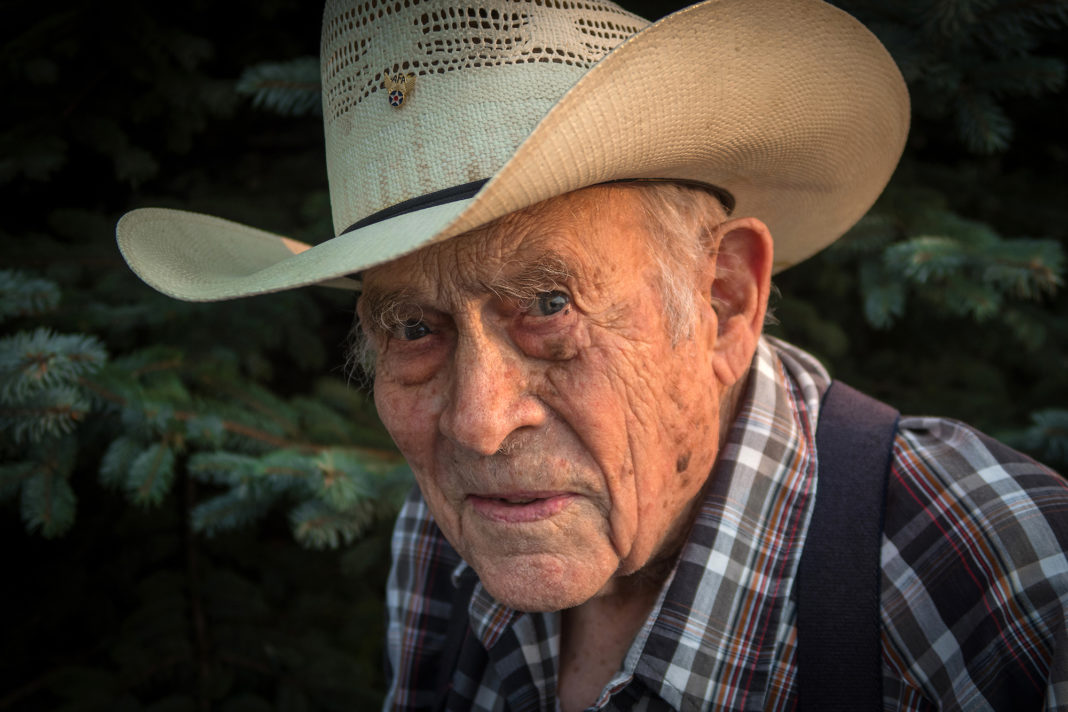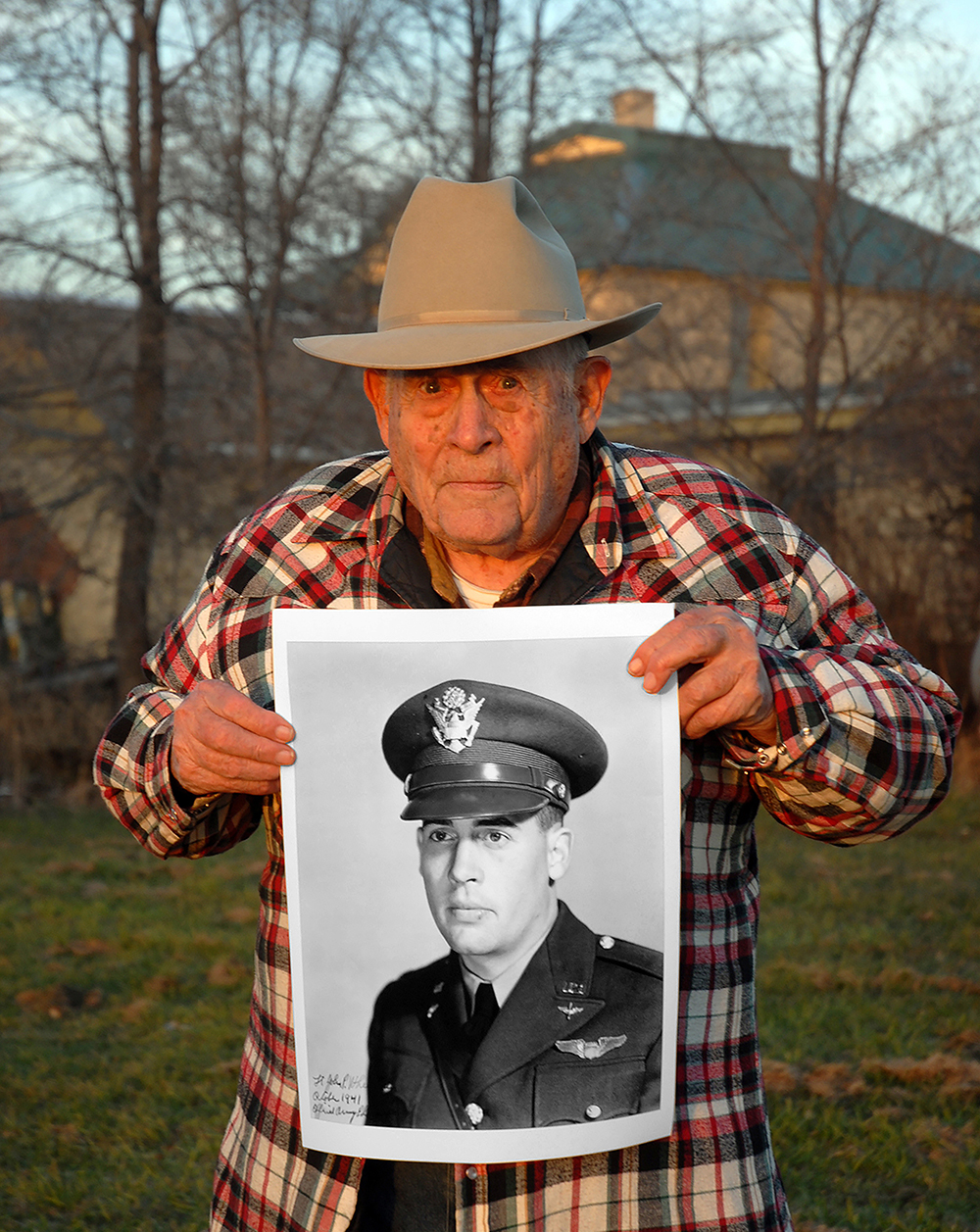
On Veterans Day, World War II fighter pilot and electric cooperative member John Wheelihan is observing a big anniversary: Seventy-five years ago, he got his wings as one of 971 members of Flying Cadet Class 41-G.
“Second lieutenants drew $125 a month and if they could keep flying they got $65 in flight pay. That was big money back then. It was one of the best jobs around,” said Wheelihan, 99, a 66-year member of Dakota Valley Electric Cooperative in Edgeley, North Dakota.
Wheelihan saw his first wartime action in 1942 at Ascension Island in the equatorial waters of the south Atlantic Ocean. While flying a Bell P-39 Airacobra, he was credited with 200 interceptions of German aircraft stopping to refuel on their way to and from North Africa.
“We had to scramble codes when we got them on the radar and then get airborne, which we could do in less than two and a half minutes,” said Wheelihan of his nine months on the remote volcanic island. “If they checked OK, they came in and landed. Fortunately, we didn’t have to shoot anyone down.”
Top staff noticed Wheelihan’s flying abilities and sent him to a command school in Leavenworth, Kansas—where he graduated near the top of his class—and two years later to Air Force staff school in Florida.
He went to Italy in 1944 and was assistant supply officer for the 15th Fighter Command for 15 months.
While in Europe, he was nearly killed by friendly fire while recovering from blood poisoning in a makeshift hospital. At the time, American B-24s were running intruder planes over German-occupied territory and dropping 500-pound bombs to harass the enemy.

“It was a cold, raining night. We were in the ward, there was no heat. I had a navigator in the bed next to me, and we heard a B-24 start to spin,” Wheelihan wrote in his self-published book, Not Required Reading: A Fighter Pilot’s View of WWII.
“I said, ‘If he doesn’t pull up pretty quick, he’s not going to make it.’ And the navigator said, ‘I don’t think he’s going to make it,’ and he jumped out of bed and got under it. It went straight down and hit about a block away with that load of bombs.”
The hospital shook and some of the ceiling fell down on the men. But they weren’t injured.
Wheelihan left active duty in 1945 and stayed in the Ready Reserve for 24 years, eventually becoming a major.
He married his wartime sweetheart, Clara May, and became postmaster of Ellendale, North Dakota, where he still lives—driving the more than 50-mile roundtrip to Dakota Valley annual meetings.
He and Clara had three sons, one of whom is Dave Wheelihan, CEO of Montana Electric Cooperatives’ Association in Great Falls.
The younger Wheelihan recalled a postwar skirmish between his father and the local investor-owned utility to extend a line to his farm in the late 1940s.
“They wanted $4,000 to run the line,” said Dave Wheelihan. “He said, ‘No, I’ll wait for the REA’. That was in 1950. He’s still mad about that.”
Victoria A. Rocha is a staff writer at NRECA.